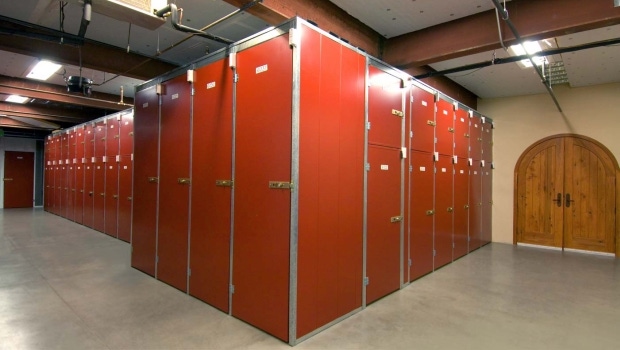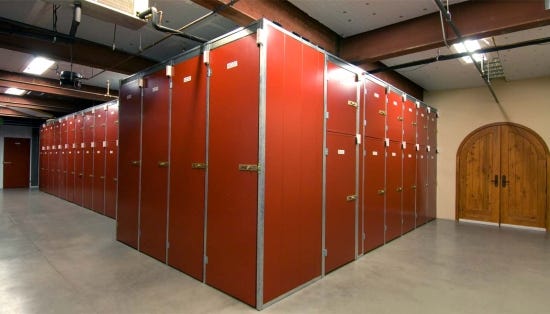Is Wine Storage Viable for Your Self-Storage Location?
While some wine-related businesses and collectors still attempt to store their wine in-house, the demand for off-site storage is increasing. If you’re a storage-facility owner, now’s the time to re-evaluate the demand for wine storage and determine if it’s a viable service to offer at your location.
September 11, 2014

By Price Self Storage
Did you know Americans make up the world’s largest wine-drinking market, consuming 13 percent of globally produced wine and racking up more than $34 billion in wine sales in 2012? Today’s consumer wants access to extensive wine lists, all within a close distance. It’s great business for private collectors, retailers and restaurant owners, who are purchasing cases from wineries around the world.
Where does all of this wine get stored? While some businesses and collectors still attempt to store their wine in-house, the demand for off-site storage is increasing. If you’re a storage-facility owner, now’s the time to re-evaluate the demand for wine storage and determine if it’s a viable service to offer at your location.
Wine Retailers and Collectors as Customers
Wine retailers and collectors take their wine seriously. They’ve already weighed the advantages and disadvantages of storing their wine in-house. Here’s what they’ve discovered:
Wine refrigerators can only hold between 10 and 250 bottles.
Wine refrigerators don’t offer humidity control.
Wine refrigerators usually can’t accommodate larger champagne, pinot or magnum bottles.
Wine cellars are an expensive option. Building a cellar ranges from $4,000 to $50,000.
Wine-cellar humidifiers can wear out and be expensive to replace.
The risks and heavy maintenance for in-house storage are a high deterrent for this group. They have specific needs they expect to be met, and they’re willing to pay extra money to make it happen. In fact, many of them are willing to pay up to 35 percent more for a storage unit that features consistent temperatures and balanced humidity.
Wine retailers and collectors will also stick around for the long haul. From a retail perspective, they’re looking for consistency. They want a place where they can store their wine for years to come. This means staying with a storage facility that makes it easier to manage their collection or run their business. Wine-storage operators offer several features that appeal to these customers: loss prevention, security and stability.

Loss Prevention
It’s surprising how easy it is for an expensive bottle of wine to go missing, especially in a restaurant or retail environment. A retailer might carry several bottles of an exclusive label that could go months before being purchased. In the meantime, there should be a record of its whereabouts, which is hard to maintain when wine is constantly going in and out of the store. Unfortunately, the largest source of shrinkage comes from within a business. This means owners are cautious of the staff who handles their shipments.
The easiest way to prevent wine loss is to keep only a few bottles of each label at the actual store. The rest should be kept off site, where there’s record of when it was brought to the facility or taken out, and in what quantity.
Security
Business owners need to feel secure with the people who handle their wine. Wine-storage operators allow retailers the exclusivity necessary to access their product and offer more privacy. It’s easy for a large, expensive home or business to stand out to burglars. Storage units, however, come with uniformity and can conceal what lies behind them.
Stability
A big concern for wine collectors and retailers is the inability to dedicate around-the-clock supervision for their collections. Wine-storage operators make them feel more secure by ensuring their wine will always be taken care of. For example, they provide back-up generators so wine can remain at a consistent temperature even during an emergency.
Another benefit for customers is provenance. Wine-storage facilities provide a record of the historical climate, which is a great selling point for anyone buying the wine. The value of wine goes up if there’s a record to show it’s been properly stored. Further, collectors appreciate that wine-storage operators are often able to accept shipments on their behalf.
Adding to Your Bottom Line
While many storage operators may prefer to stick with “what they do best,” ancillary sales still account for about 5 percent of revenue. Don’t forget a wine lover is the type of customer who will spend more to improve the value and quality of his collection.
Targeting wine lovers not only brings in new commercial accounts, it opens the door for a more upscale clientele. It sets your storage facility apart from competition and presents the business as a well-rounded storage offering. Consider whether your facility would benefit by providing wine-storage solutions to customers.
Price Self Storage has facilities throughout California and offers wine storage at its Walnut Creek location. From individual 18-case lockers to 500-case rooms, the company’s wine storage can be configured in a variety of layouts to accommodate any size or collection. For more information, visit www.priceselfstorage.com.
You May Also Like





